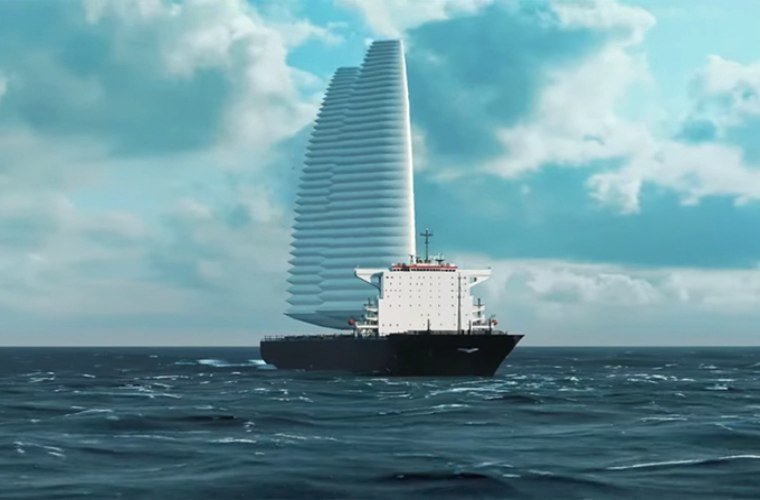Put the tires and the annual guides aside, Michelin is sliding into the wind sail business!
At this year’s Movin’On, the world’s summit on sustainable mobility, Michelin presented the WISAMO project, a major innovation that aims to contribute to the decarbonization of maritime transport by relying on wind energy.
As the world is moving towards total environmental catastrophe, profound changes need to be made right now to address mobility challenges. Michelin seeks to make maritime transportation more efficient while still conserving fossil resources.
Background: The environment is sinking, Can WISAMO Keep It Afloat?
If you’ve been paying any attention to what’s going on in the world lately, you’ve probably heard about the environmental disasters occurring all over due to climate change. Things have been so bad that extraordinary measures have to be implemented to avoid any irreversible consequences of abusing the environment.
The US aims to cut 50% of greenhouse gas emissions by 2030 and become climate-neutral, with net-zero greenhouse emissions by 2050.
BRS Brokers CEO François Cadiou defends that while maritime transport is essential, the use of oil fuel has become catastrophic, and CO2 emissions need to be cut down. Maritime transportation represents around 3% of the world’s CO2 emissions, so if shipowners don’t find a way to meet the required standards, their businesses will probably sink.
Michelin intends to promote “sustainable mobility,” and, for that, the French multinational has come up with innovative projects that will likely revolutionize the future of transportation, not only on the road but also in the sea. The Wing Sail Mobility (WISAMO) is based on the creation of a new sail system for all types of boats that will help decarbonize shipping through the sea.
This project was created in collaboration with Michel Desjoyaux, a French navigator and world-renowned skipper whose input and technical knowledge have significantly impacted the development of WISAMO. Thanks to his expertise, the experiment will be enabled for testing on a merchant ship in actual maritime conditions.
Analysis: From Giant Inflatable Man to Giant Inflatable Sail
The WISAMO project is an automated, telescopic, inflatable wing system with a revolutionary design, especially suited for ro-ro ships, bulk carriers, and gas tankers. It can also be used on pleasure crafts. This system takes advantage of wind propulsion, allowing ships to reduce fuel consumption by up to 20%, which positively impacts the environment by lowering CO2 emissions.
With a “Plug and Play” system, the wings are easy to install and use. They can be fitted as original equipment on new boats or installed in boats that are already operational. With a press of a button, a small air compressor unfurls the telescopic sail into shape. Then it automatically chooses the correct setting for the cargo ship (which is great considering the lack of sailboat experts boarding an actual cargo ship).
The design of the sails allows them to capture the wind like an airplane wing, generating power that propels the boat forward. Their double surface also results in a better performance than the traditional sail.
The most unique feature of WISAMO is the fact that the sails are inflated, reducing the mechanical stress on the fabrics and increasing the flexibility of the wing; the ability of complete retraction, making it easier to go under bridges, or even promoting the safety of crew members during bad weather conditions; and this system’s capacity of sailing very well upwind.
Outlook: All hands on deck
The shipping industry is under pressure to adhere to the increasing environmental requirements, and the time to act is now before the damage done to the environment is irreversible.
Desjoyeaux points out that “the advantage of wind propulsion is that wind energy is clean, free, universal and totally non-controversial. It offers a very promising avenue to improving the environmental impact of merchant ships”.
In fact, Michelin is not the only company trying to explore greener navigation options. Several other systems are being tested, including kite sailing, folding masts, rotor sails, and even solar and wind energy mixes.
The WISAMO system will be implemented for the first time on a merchant ship in 2022. At that time, Michelin expects it to go into full production after the testing phases are complete.
Raquel is a forensic geneticist turned freelance writer. She has a knack for technology and a passion for science. You can follow her at scitechcorner.com and on Twitter @theRaquelSantos.

